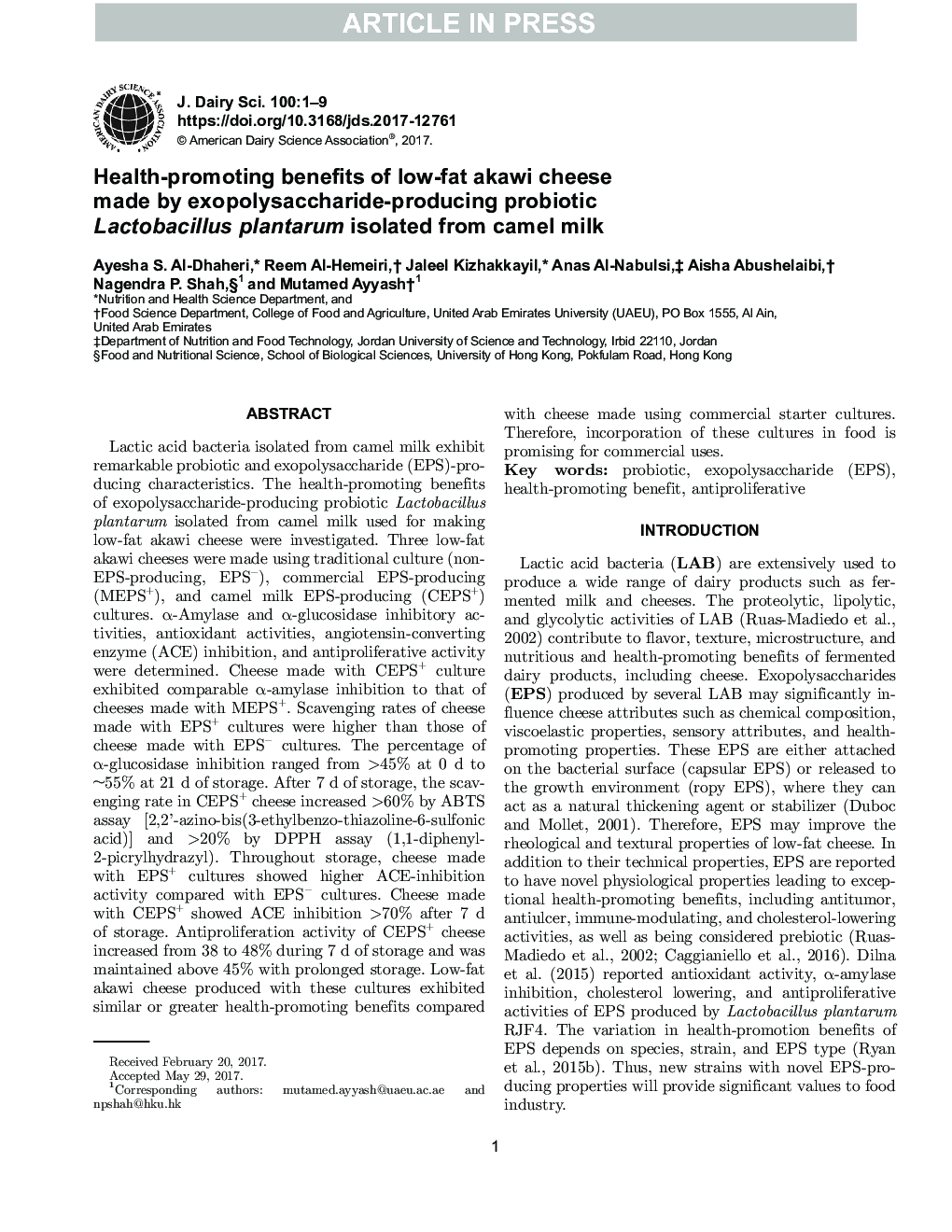| Article ID | Journal | Published Year | Pages | File Type |
|---|---|---|---|---|
| 5541966 | Journal of Dairy Science | 2017 | 9 Pages |
Abstract
Lactic acid bacteria isolated from camel milk exhibit remarkable probiotic and exopolysaccharide (EPS)-producing characteristics. The health-promoting benefits of exopolysaccharide-producing probiotic Lactobacillus plantarum isolated from camel milk used for making low-fat akawi cheese were investigated. Three low-fat akawi cheeses were made using traditional culture (non-EPS-producing, EPSâ), commercial EPS-producing (MEPS+), and camel milk EPS-producing (CEPS+) cultures. α-Amylase and α-glucosidase inhibitory activities, antioxidant activities, angiotensin-converting enzyme (ACE) inhibition, and antiproliferative activity were determined. Cheese made with CEPS+ culture exhibited comparable α-amylase inhibition to that of cheeses made with MEPS+. Scavenging rates of cheese made with EPS+ cultures were higher than those of cheese made with EPSâ cultures. The percentage of α-glucosidase inhibition ranged from >45% at 0 d to â¼55% at 21 d of storage. After 7 d of storage, the scavenging rate in CEPS+ cheese increased >60% by ABTS assay [2,2'-azino-bis(3-ethylbenzo-thiazoline-6-sulfonic acid)] and >20% by DPPH assay (1,1-diphenyl-2-picrylhydrazyl). Throughout storage, cheese made with EPS+ cultures showed higher ACE-inhibition activity compared with EPSâ cultures. Cheese made with CEPS+ showed ACE inhibition >70% after 7 d of storage. Antiproliferation activity of CEPS+ cheese increased from 38 to 48% during 7 d of storage and was maintained above 45% with prolonged storage. Low-fat akawi cheese produced with these cultures exhibited similar or greater health-promoting benefits compared with cheese made using commercial starter cultures. Therefore, incorporation of these cultures in food is promising for commercial uses.
Related Topics
Life Sciences
Agricultural and Biological Sciences
Animal Science and Zoology
Authors
Ayesha S. Al-Dhaheri, Reem Al-Hemeiri, Jaleel Kizhakkayil, Anas Al-Nabulsi, Aisha Abushelaibi, Nagendra P. Shah, Mutamed Ayyash,
